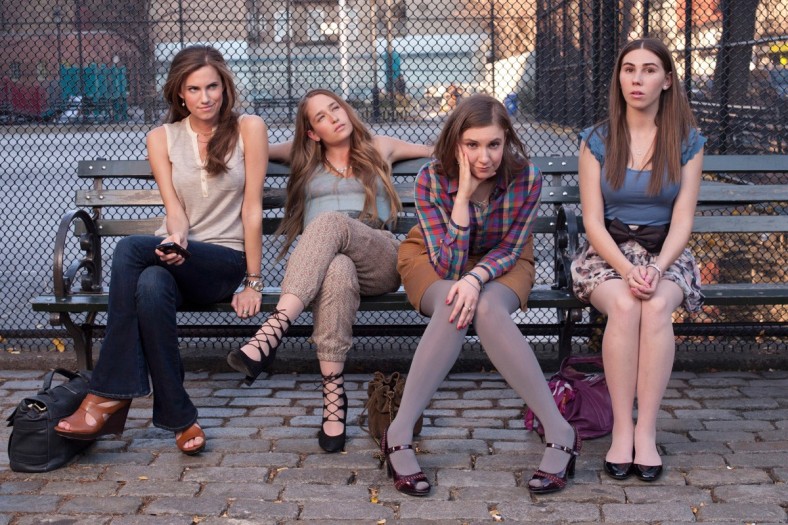I’ve been binge-watching the series to prepare for the new season premiering in January, and I find myself relating to it, not because I’ve had similar experiences (I’ve never accidentally smoked crack at a party in Bushwick), but because I feel like I’m in the same stage in life as the characters.
Many series chronicle the plight of being a teenager, going through high school or beginning college–like Buffy the Vampire Slayer–while others focus on the early thirties–like How I met your Mother, which is basically the Friends of another generation. But few shows explore the confusing and terrifying stage of being a twenty-something, having already graduated from college and facing the rest of your life, which you’re supposed to have figured out by now.
No one really tells you about it. Perhaps in past generations you would graduate from college and immediately find a good job that pays well and leads to a successful career. But is that really the case for anyone? Maybe it’s harder for people who study really abstract things in school, like English or philosophy or film, and that’s why I and many people I know seem to be stuck in this limbo of life that Girls so successfully depicts.
There’s something about that idle stage, where you might actually have a job but it has nothing to do with what you want to do, that this series really captures. You feel like you’re working so hard to become the person you want to be, yet when people–namely, real adults–ask you what you’re doing the answer sounds a whole lot like “nothing.”
The characters seem to be quite different, but they all end up in the same place. Hannah knows exactly what she wants to do in life, but being a writer is a complex thing to achieve. Marnie thinks she also knows exactly what she wants and she seems to be on the right track, until suddenly she’s not and she realizes that her ideas might not have been based on who she is at all. Jessa is happy with being a free spirit, roaming the world and living every experience but, although she doesn’t say it quite yet, it feels like she’s starting to wonder what the point is. Adam is so talented that it makes him slightly insane. Ray is content working for at a coffee shop with no hope of ever moving forward, until falling in love with Shoshanna makes him question whether he really wants to be a loser forever. The point is, whether they know what they want or not, all the characters end up in the same limbo of life, sharing experiences that they never expected but that will end up shaping who they become.
Shoshanna, being the youngest character and still a student, embodies who the rest of the characters were at some point. She expects that when she crosses that threshold of graduation she will end up exactly where she planned. But the other characters are there to show that this is rarely–probably never–true. Marnie will not end up a successful curator; first she has to figure out who she is. Hannah will become a writer, but not by taking the path she expected (maybe her essays about life will turn into episodes of a successful show that really does capture an entire generation).
Looking past the glamour of living in New York, Girls feels real. If you’re in the same stage of life as the characters, you feel like the same things could be happening to you. You could be making terrible choices, you could have a falling out with your roommate and best friend, you could chase a guy for months and when he finally returns the attention you get freaked out by his overwhelming love, you could decide to get married on a whim to someone you barely know and it turns out to be a complete nightmare.
Girls might seem like the thoughts of a whiny writer who wants to be accepted (as depicted in an eerily accurate SNL parody), it might seem like nothing happens at all–which is the criticism Hannah’s short-term boyfriend Sandy gives her about her essay–but the reality is that those little moments that might seem meaningless are life-changing experiences for the recently-graduated twenty-something. Those moments are what help you realize that you have now stepped into real life, and absolutely nothing at all had prepared you for it. It’s not just your education and your plans that make you who your are, it’s fucking up and learning to get through it. This show is able to express that in a way that none other has, and that’s what makes Hannah Horvath the voice of her generation.
